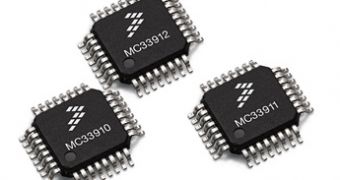Although Freescale's been somewhat of a quiet presence on the mobile chipsets market (compared to the much more vocal ARM, NVIDIA, Intel, AMD, etc.), the company seems to have had a pretty good year, since it's just revealed the fact that eleven tablet products available this holiday shopping season are based on processors from Freescale, more than from any other semiconductor supplier.
So, while western markets have focused primarily on a small number of high-profile tablet products (namely, the iPad, Samsung Galaxy Tab, etc,), some of which are yet to ship in production Freescale has quietly won a significant share of the fast-growing “white box” market, which has developed predominantly in Asia.
In fact, a recent report from ABI Research found that the majority of media tablets released commercially in 2010 use application processors from Freescale.
While the majority of Freescale-powered tablets are intended for popular consumer Internet activities, such as browsing, social networking, shopping and consuming online content, several of the designs are intended for other uses, signaling that the form factor is evolving and segmenting to meet additional market requirements.
For example, one Freescale-based 7-inch tablet serves as a browser-equipped touch screen controller for a premium connected color printer, while two others are marketed as 5.5-inch and 10-inch color eReaders that also feature a color touch screen, web browsing and social networking capabilities.
“Freescale has experienced significant demand from tablet OEMs around the world as they prepared products for the 2010 holiday shopping season,” said Glen Burchers, director of Marketing for Freescale’s Consumer Segment.
“Freescale’s signature blend of performance, energy efficiency and cost-optimized embedded processing is proving attractive for a range of tablet OEMs,” added the company's rep.
Unfortunately, Freescale doesn't really say which of the tablets currently available on the market are powered by its chips, but we hope to find out more on this topic in the near future.

 14 DAY TRIAL //
14 DAY TRIAL //